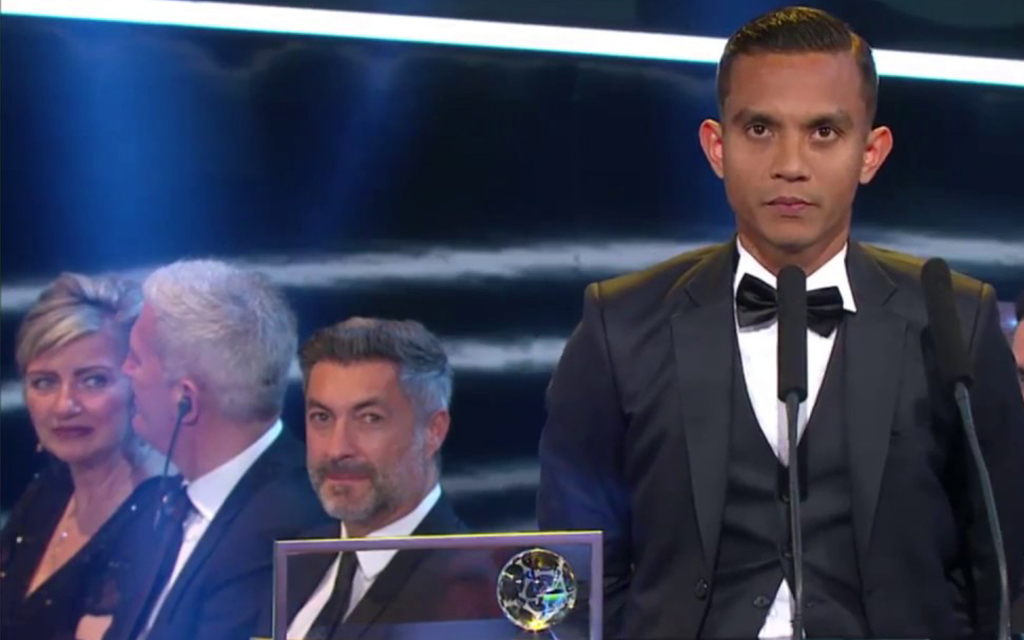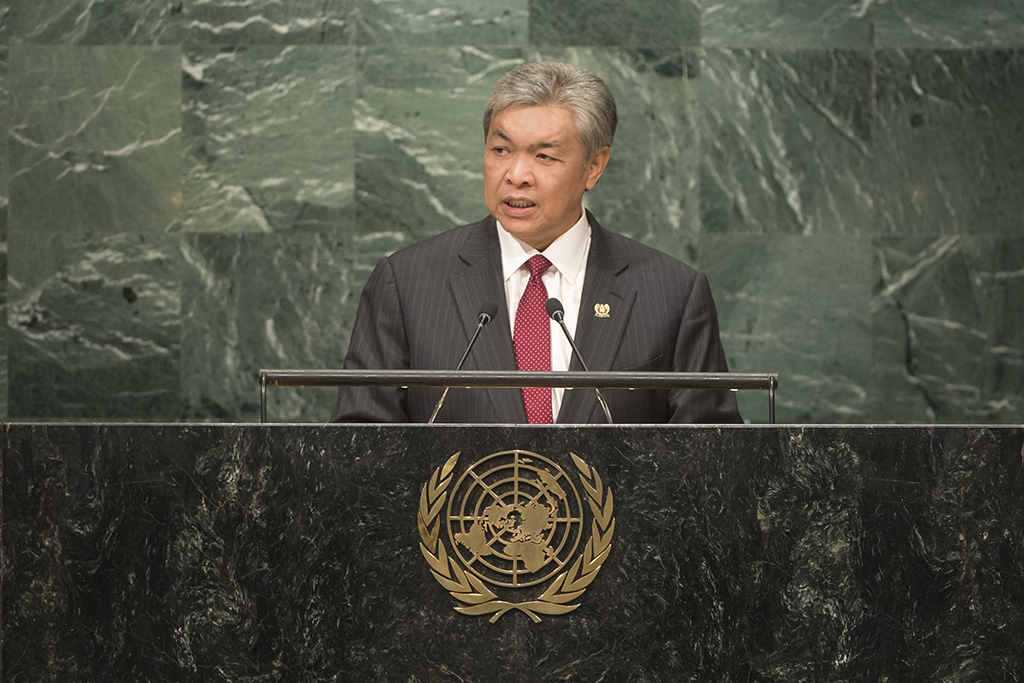Slamming stuttering tongues is just another act in a long history of oppression, writes Tan Zi Hao.
Malaysia has a problem with language, and more particularly its use and abuse.
Footballer Faiz Subri’s recent address in English upon his reception of the 2016 FIFA Puskás Award has stirred familiar debates about language choice and identity politics. His stammering invited predictable reproach. Fortunately, many stood in his defence.
This squabble might seem mundane, but is hardly trivial. Despite 54 years of nationhood, insecurity still strikes at the heart of the nation’s culture. That a lack of language proficiency is something to be ashamed of remains a common symptom of this hang-up in postcolonial Malaysia.
This battle of culture and pride is waged through the politics of language, with Malay and English the two belligerents. If the former represents the national language, the latter is deemed “colonial.” Both languages have locked horns with each other since the period leading to Malaya’s independence, starting with the Barnes report in 1951 (a British proposal to develop a national education system in Malaysia), followed by 1956’s Razak Report (a Malayan education counter proposal).
After independence it was seen in former prime minister Dr Mahathir’s PPSMI (Teaching and Learning of Science and Mathematics in English), introduced in 2003, and its substitute MBMMBI (Upholding the Malay Language and Strengthening Command of English). The ongoing scuffle between Malay and English has witnessed a multitude of policy negotiations, street demonstrations, and on a more personal level, language shaming.
In Malaysia, verbally bashing people for their stuttering and broken language use is in fashion. Before Faiz Subri, there was the Deputy Prime Minister Zahid Hamidi. His speech at the United Nations General Assembly in 2015 was lambasted not for the content but for his non-fluent English. The inability to speak Malay has also received criticisms, but of a different kind – instead of being shamed for lacking ‘professionalism,’ inarticulate Malay speakers are considered less Malaysian.
If speaking English has become an indicator of professionalism, speaking the Malay language signals one’s loyalty to Malaysia. In 2009, Rais Yatim (then Minister of Information, Communication and Culture) sneered at a local journalist during a press conference for prompting a question in English. Without intending to address the question, he publicly shamed the journalist for the choice of language: “Where were you educated, you can’t speak bahasa at all?”
But be it English or Malay, those annoyed by Zahid Hamidi’s English are fundamentally not at odds with Rais Yatim. The premise is quite basic. Language shaming has more to do with ego-boosting than anything else: I speak better Malay therefore I am more authentically Malay/sian than you. I speak better English, therefore I am more professional or intelligent than you. That one’s linguistic proficiency can be used as an index to measure one’s loyalty towards their country, or, to measure one’s professionalism and intelligence, is outrageous.
More importantly, shaming others for the inability to speak the language of a dominant culture only reflects one’s ignorance of the history of language. Language shaming fails to recognise the implicit power of linguistic ideology (those sets of beliefs and values surrounding any language). In the context of Malaysia, both English and Malay are hegemonic languages. In their presence, other languages are relegated to lower status to be discriminated against. Those who do not partake in the dominant culture are immediately marginalised and are placed in a condition where acquiring a second language becomes a priority.
This hierarchy systemically and structurally coerces many to only speak select languages, while other languages and variant dialects are reduced to communal use. Cultural and linguistic hegemonies are usually achieved through a history of oppression. Every dominant language that we now speak is a result of past violence.
English became hegemonic after two world wars and a long history of imperialism. But, the standard Malay language, as a nationalist medium of propaganda, possesses sub-imperialist motivations too. One language dominates at the expense of another. The official “standard Malay,” which is a Malay dialect of the erstwhile Malaccan-Johor-Riau Empire, became “Bahasa Melayu” at the expense of other Malay dialects such as Loghat Utara or Base Tranung.
It is the same with Mandarin and its use in Malaysia. In the 1990s, Chinese national-type schools in Malaysia had an informal policy to discourage students from speaking any Chinese dialects other than the officially-sanctioned Mandarin. A ridiculous fine of 20 cents per word was imposed on students caught speaking Cantonese, Hakka, Hokkien, and other non-Mandarin dialects.
It is important to recognise the sub-imperialist characters intrinsic to any language of a dominant culture. Many grow amnesic towards this oppressive history of language. Too often one is taught to take pride in one’s own language without acknowledging its historic malice.
If those who fail to learn from history are doomed to repeat it, it is essential to constantly remind ourselves that shaming Faiz Subri, Zahid Hamidi, or any other stammering tongues, is part of this legacy of oppression.
Tan Zi Hao is a postgraduate student in the Department of Southeast Asian Studies, National University of Singapore. He is also a conceptual artist whose artworks can be viewed at www.tanzihao.net.
 Facebook
Facebook  Twitter
Twitter  Soundcloud
Soundcloud  Youtube
Youtube  Rss
Rss 

